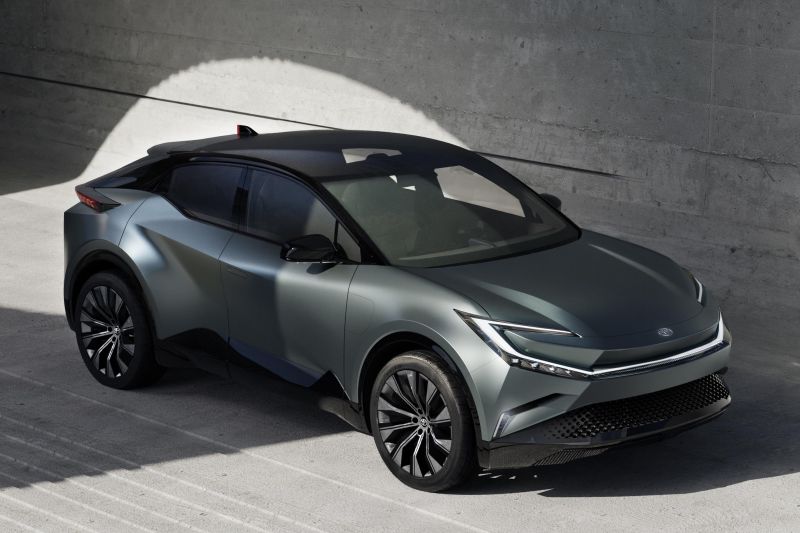Toyota says it’s not behind in its development of electric vehicles (EVs), but instead is being honest with the global market about the pace at which some countries can realistically electrify.
The Japanese giant invests roughly $13 billion a year in research and development, which works out at almost one-and-a-half million dollars every hour of every day.
Yet, from the outside looking in, it has seemingly been slow to bring about a range of EVs, with the very first – the bZ4X – set to arrive in Australia in February 2024.
Speaking to Australian media, Toyota Australia vice president of sales and marketing Sean Hanley said that any criticism of the brand’s pace to electrification is not based on reality.
“What you’re seeing today is a car company that’s not behind. You see a car company that’s put a lot of investment, a lot of r&d or research and development into electric cars,” Mr Hanley said.
“But you’re also seeing a car company that’s being honest with the market and saying not every part of the globe can do battery electric vehicles only. Alright. Not every part of the globe. It’s it’s part of the solution to carbon neutrality, but it’s only one piece of the puzzle.”
Toyota has already invested billions in its own battery production facility and believes that it makes better batteries than its competitors. It also says that hybrids are better for the environment than EVs, because it takes the same amount of raw battery material to make a single electric vehicle as it does to make 90 hybrids, or six plug-in hybrids.
Furthermore, the brand is heavily interested in making sure the likes of hydrogen vehicles have a viable future, shying away from hedging its entire future on just EVs like some other brands have been keen to do.
“If you only invest in a single way of getting to carbon neutrality, then you’re essentially ignoring all the other wonderful opportunities and technologies that exist in hydrogen fuel cell, synthetic fuels, etc…” said Mr Hanley.
“It just goes on and on and on. So therefore what you’re seeing today is a car company that is progressive, but it’s also real about its future.”
Despite its hesitance to commit to a full battery-electric future, the brand still plans to produce 3.5 million EVs by the year 2030, while its joint venture with Panasonic to produce its own lithium-ion batteries makes Toyota one of only three manufacturers that has control over its own battery production.
Toyota Australia plans to have at least 50 percent of its sales be of electrified vehicles by 2026 (this includes hybrids) and will introduce around 10 new full-electric models by 2030. Toyota sales in Australia are currently about 30 per cent hybrid.

